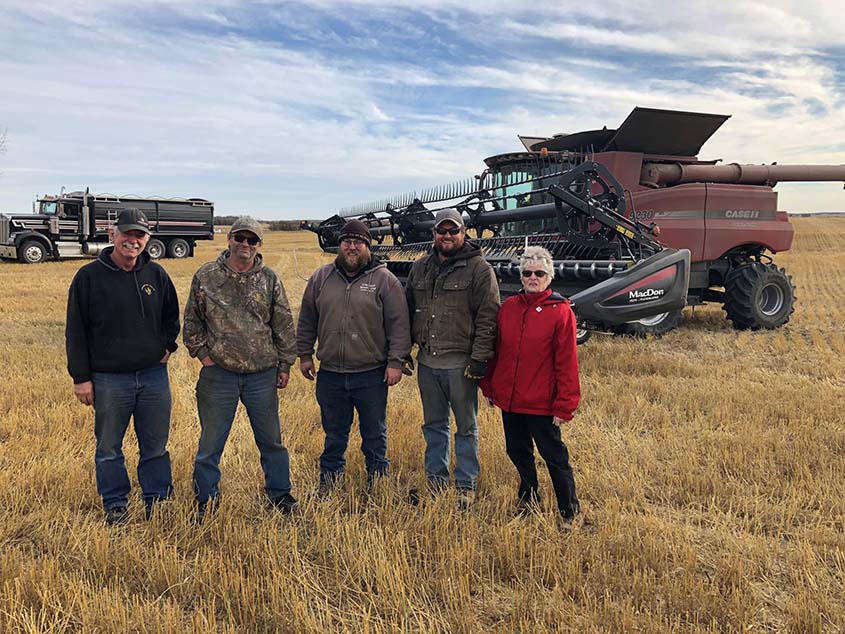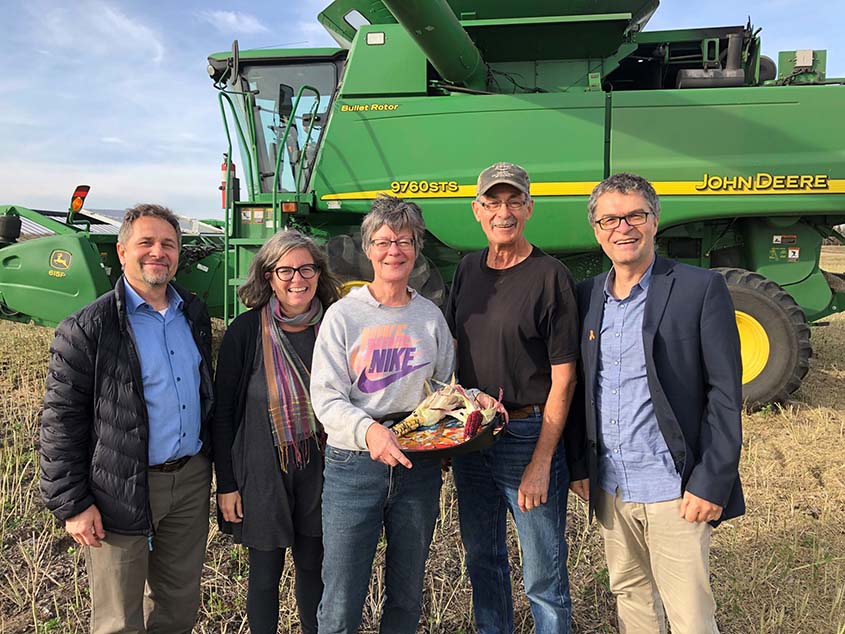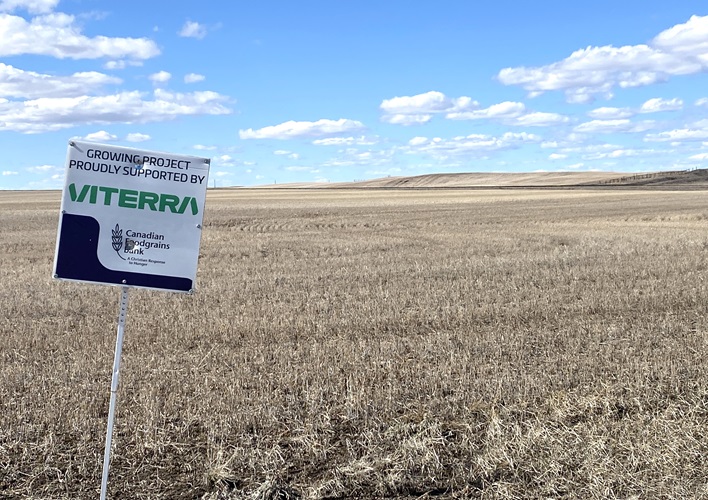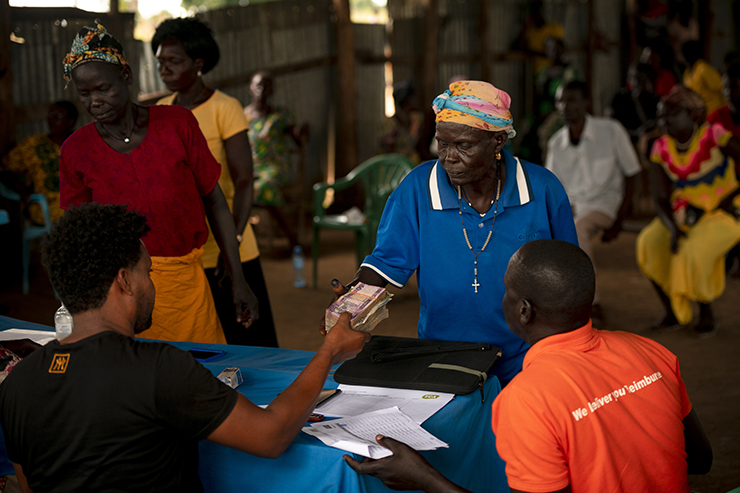The Hudson Bay Rotary growing project was one of 30 in Saskatchewan this past year. Growing project harvests are always a cause for the community to gather and celebrate. (Photo: Submitted)
Over 3,300 acres dedicated to helping end hunger overseas
They were hoping for a repeat of 2017. Most farmers in Saskatchewan will tell you the weather across the province that year was ideal. The 2019 growing season, however, was far from ideal.
“It was a bizarre year,” says Kelvin Schapansky, chair of the Strasbourg and District growing project. “We seeded wheat on 100 acres, and it was extremely dry at the start, so germination was poor. Mid-June we finally started getting rains and the crop eventually came up. Getting it off was tough because we had a very small window, but we managed to get to it on the last good day before the big snows.”

The Strasbourg and District growing project in Saskatchewan managed to get their 100-acre crop of wheat off on the last good day before the big snows came. The project brought in between 60 and 70 bushels an acre, an unexpectedly high yield. (L-R: Kelvin Schapansky, John de Hoop, David and Kevin Craswell, and Elaine Hack who donated the land. Photo: Submitted)
The project was one of 30 in Saskatchewan last year, totalling more than 3,300 acres of land dedicated to growing crops in support of Canadian Foodgrains Bank’s work to end global hunger.
Quality of some crops affected
“In many cases, crop yields were average or above-average,” says Rick Block, Foodgrains Bank representative for Saskatchewan. “But crops like canola, wheat and flax had significant downgrades due to wet harvest conditions. Harvest had a lot of stop and go and uncertainty, so the season really took an emotional toll on farmers.”
Harvest had a lot of stop and go and uncertainty, so the season really took an emotional toll on farmers.”
“It was a very dry spring and seeding went well, but it just kept getting drier, so not everything germinated right at the start,” says Gaylord Mierau of the Langham growing project, northwest of Saskatoon. “We grew canola on 85 acres. Maybe 90 percent of it came up, but the other 10 percent was about a month later when we finally got rain. That caused some issues with crops at variable stages.”
Further east in the province, the Moosomin Harvest of Hope growing project faced challenges getting their 280 acres of wheat harvested.
“This year, seeding was pretty good,” says Kyle Penner, who provides leadership to the project. “Pattison Agriculture sponsored half the acreage this year and took care of seeding and spraying. The partnership helps us send even more money to the Foodgrains Bank and allows Pattison to conduct a production analysis of their equipment.”
When it came time to harvest, it was all hands on deck.
“The Parrish & Heimbecker elevator actually stayed open just for us—kept a guy there three to four hours late, because the snow was supposed to come that night,” says Penner. “And it did. We managed to get most of it off, but about 40 acres couldn’t be harvested because the ground was too wet.”

Last October, Gaylord and Lois Mierau (centre) harvested the Langham Growing Project for the final time. For nine years, they dedicated 85 acres to helping end hunger around the world, growing thousands of bushels of cereals, canola, and flax. MCC Executive Director Rick Cober Bauman (far right), along with Eileen Klassen-Hamm and Rick Guenther from MCC Saskatchewan took the occasion to thank the Mieraus for their inspiring stewardship and generosity.(Photo: Submitted)
Every effort makes a difference
“Sometimes we are prone to assuming that food is easily produced and will always be readily available,” says Block. “However, this past growing season reminded us of the significant challenges in securing a harvest. The burden and stress on livelihoods is very real, and we pray that God’s grace, peace and love extends to the families and communities that are facing difficulties. Thank you to everyone involved with growing projects for your unwavering commitment to helping others who don’t have enough to eat.”
We pray that God’s grace, peace and love extends to the families and communities that are facing difficulties.”
“People deserve to eat,” says Penner. “We can have a massive impact globally simply by doing the things we do naturally. People here farm, and getting together and lending our expertise to a growing project has a huge impact for families around the world. We’re very happy to play a role in that.”
– Jason Permanand, Writer




